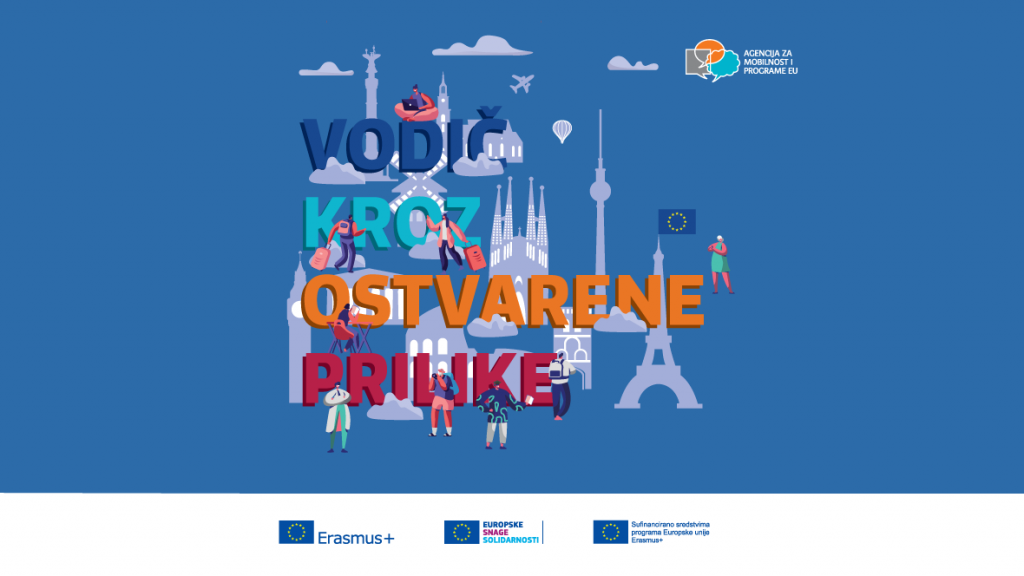I’m changing Europe!


Europe Goes Local closely follows and supports the goals and objectives of its network members, taking an active role in sharing youth work experiences and insights from each of the countries. Through this interview, you can get inspired and informed by Ms Aleksandra Švast, Senior Advisor in Department for European Solidarity Corps, from the Croatian Agency for Mobility and EU Programmes. Ms. Švast shared with us the direction of the Croatian NA, initiatives for quality development of local youth work, insights on collaboration with the EGL project and reflections on the impact of COVID19.
Q: Within the framework of EGL partnership, what are some highlights of the Croatian National Agency plan and strategy for 2021?
A: Municipalities will remain our main beneficiaries at the national level. We will continue with the current strategy and individual support to smaller number of municipalities through specialized activities and providing a know-how for creating youth friendly environment in their community. Our intention is to keep the 28 municipalities we closely worked with in the two editions of national EGL in the project and to invest in their further improvements by informing them on all the
future offers of the EGL network and involving them in our partnerships with other NAs such as Lobbying for youth work modular training in cooperation with Belgian, German, Latvian and French NA.
Results of the second edition of the national activities are to be presented on the national EGL conference this autumn. This will also be the opportunity to announce a public call for municipalities for the third edition of the national activities. Prior the call, we will do a comprehensive evaluation of the two previous cycles to make improvements in the selection process as well as updates of the training programme.
Q: Could you tell us a bit more about the initiatives of municipalities in Croatia to deliver quality youth work at the local level? And how is the national support for this initiative?
A: In Eastern Croatia, in the city of Slavonski Brod for example, there is a very good local housing policy. The municipality constructs buildings and gives apartments for lease to young families for a symbolic price. By doing so, they are stimulating young people to stay in a city, and trying to cope with negative demographic trends.
In the other part of Croatia, in the small-town Pregrada, there is youth participatory budgeting. Via inclusive, participatory methodology young people decide on priorities in their local community which are later to be funded from the local budget. This process involves public, private, and civic organizations and is intended not only to solve communal issues young people are facing but also as a form of civic education in practice.
The innovation of both aforementioned initiatives is even greater because so far no national policy initiatives cover these issues thus the local community by supporting local youth work steps into that place.
Q: How do you utilize the EGL Charter in creating good practices and higher standards for quality youth work development in Croatia?
A: The EGL Charter has been recognized in the process of certification of youth friendly cities in Croatia, which is a newly launched project initiated by the Association of Cities in Croatia. The Croatian certification model and all the measures a candidate city needs to implement to be considered as a youth friendly city were guided by the EGL Charter's principles. To make cities even more aware of the guiding principles for setting up good quality youth policies, the mayors of the candidate cities were required to acknowledge the EGL Charter's principles in written. We believe this contributed to better visibility of EGL among the cities and will bring good practice examples in the future. Our future national activities will also involve promotion of the EGL Charter via the EGL ambassadors and linking Charter's guiding principles with good examples from practice – all this in order to inspire all relevant stakeholders to make a step forward in what they already do in the field of youth work and youth policies.
Q: How is the Croatian NA promoting European programmes amongst municipalities?
A: An introduction to Erasmus+ and European Solidarity Corps as well as other European funding opportunities are integral part of our national training course for municipalities selected to participate in national EGL. Erasmus+ best practice examples are also invited to share their experience and to present how can municipalities support youth work though these projects (e.g. active participation in EU youth dialogue projects or co-funding of the Programmes' activities). As part of our intention to keep those EGL municipalities informed on the funding opportunities, they were also invited to launching conference of Erasmus+ and ESC programme recently organised by our NA as well as to specialized webinars on the opportunities these programmes offer. We are aware that not all types of E+ and ESC projects are intended for municipalities to be applicants/partners. However, the intention is also to make them aware of the European youth policies and European funding opportunities as integral part of their local youth policies and local budget distribution policy.
Q: In your opinion, how can EGL project contribute to the quality of local youth work?
A: All the content that is being offered to stakeholders and what has been accomplished so far made EGL a project you want to be part of. By involving wide profile of youth experts from all around Europe on both European and national implementation levels, it ensures professional guidance to municipalities, youth workers and other relevant actors in the field of youth work. The transnational dimension of the project offers practice exchange, networking and partnership building Europe wide. Hopefully, the COVID-19 pandemic will soon allow residential activities and learning other youth policies and practices in person. The Changemakers toolkit can also be considered as one-stop-shop for all those involved in youth work and youth policies – a place were you can be inspired by other examples clearly connected to the EGL Charter's principles, a place where you can measure and track your own youth policy improvements, find all relevant EU youth policy documents, initiate partnerships etc. In the coming period we will give our best to make all the opportunities EGL offers easily recognised and used by target groups as much as possible. The diversity of content, tools and methods makes EGL unique platform for quality development of youth work as part of municipal youth policy.
Q: Has the COVID crisis impacted this year’s planning and how, if so, has it changed the landscape of local youth work development locally and internationally?
A: This year's national project activities were planned taking into consideration possible restrictions due to COVID-19. However, national EGL conference, planned prior COVID-19 crisis is still on hold. It is postponed to autumn this year and hopefully we will manage to organise it residentially. Pandemic affected planned transnational networking activities as most of them were either cancelled or took place via Zoom. In terms of our national context and readiness of municipal workers to participate in transnational activities, it would be much easier for us to encourage them to do the transnational networking if the activities were organised residentially. On the national level, COVID crisis postponed certain municipal activities which were part of their individual activity plans, but most of them were or will be implemented by autumn. Hopefully, we will all soon manage to implement planned activities without restrictions imposed by COVID-19 pandemic and make significant impact on the local youth work.
